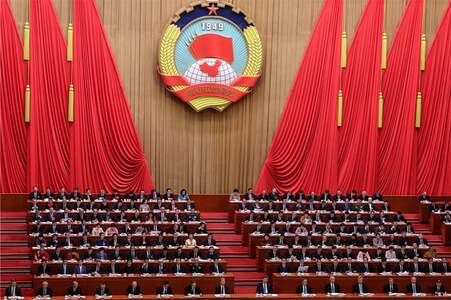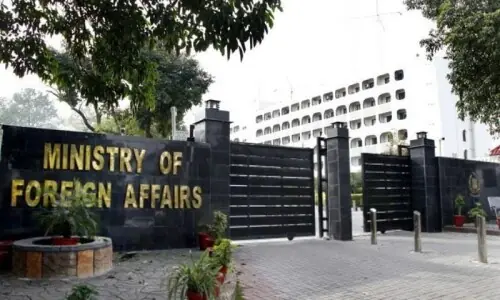
Classified By: Anne W. Patterson, for reasons 1.4(b)(d). 28 Dec 2007.
(S/NF) The Pakistan Muslim League has unofficially selected former Punjab chief minister and current head of the party Punjab chapter, Chaudhry Pervaiz Elahi, as its candidate for the prime ministership following the Jan 2008 national elections.
Elahi, who until the Nov 15 dissolution of the provincial governments served as Punjab's Chief Minister, has long been a prominent figure in center-right politics in the Punjab province.
While Elahi lacks the personal charisma of other major political leaders, such as the late Benazir Bhutto and Nawaz Sharif, his political instincts and organisational skills more than compensate for this deficiency. Unlike Bhutto and Sharif, who run their parties as personal fiefdoms based on the sheer force of their personalities, Elahi and his cousin/brother-in-law Chaudhry Shujaat Hussain have a history of deal-making and coalition-building with Pakistan center-right, that has created personal and political ties between them and most of the Punjab feudal and industrial elite.
(S/NF) Elahi first came to prominence along with his older cousin and brother-in-law Chaudhry Shujaat Hussain as supporters of center-right leader Nawaz Sharif. As Lahore-based Kashmiris who relied primarily on the army and intelligence agencies for political elevation, the Sharifs lacked personal ties and common ground with most of Punjab's center-right politicians who hailed from the province’s traditional feudal and industrial families.
The Chaudhrys, industrialists from Gujrat, were among the first to recognise the Sharifs’ rising influence in center-right politics and first formed business and later political ties to the family. For this reason, both Ch. Pervaiz and Ch. Shujaat were ultimately admitted to the Sharifs’ inner circle, making them arguably the second most powerful family in the Pakistan Muslim League-Nawaz.
The Sharifs came to rely on the Chaudhrys for much of the political strategy and deal-making that kept the coalition of Punjabi feudals and industrialists -- on which the party was based -- working in tandem (despite Nawaz Sharif’s notoriously difficult personality).
(S/NF) The Chaudhrys’ major rift with the Sharifs came following the 1997 elections. Nawaz Sharif had ostensibly promised Ch. Pervaiz and Ch. Shujaat that, in return for engineering an election campaign that resulted in a two-thirds majority for the party in the National Assembly, Ch. Pervaiz would be made Chief Minister of the Punjab. Following the party’s victory, however, Nawaz broke his word and instead elevated his brother Shahbaz to the chief ministerial office -- leaving Elahi as Speaker of the Provincial Assembly.
While Elahi remained loyal to Nawaz and the PML-N, the relationship between the two families never fully recovered. Ch. Pervaiz has raised this story on more than one occasion with the Principal Officer, as evidence of Sharifs’ lack of trust in non-family members, and as a reason for the break between the two families following the 1999 coup.
(S/NF) The decision to remain with the PML-N in 1997, despite differences with the Sharifs, was largely due to the Chaudhrys’ distaste for the Bhutto family -- a rivalry that pre-dates the current generation. The Chaudhrys hold Benazir Bhutto’s father responsible for the death of Ch. Pervaiz Elahi’s father and for the imprisonment and torture of Ch. Shujaat Hussain’s father during the elder Bhutto’s tenure as prime minister.
Both Ch. Pervaiz and Ch. Shujaat were briefly detained by the elder Bhutto. Ch. Shujaat’s father was a close adviser to Gen.
Zia-ul-Haq following his 1979 coup against Bhutto, and is believed to have encouraged Gen. Zia to have Zulfiqar Ali Bhutto executed. Rumour in Lahore is that Ch. Shujaat’s father loaned Gen. Zia his pen to sign Zulfiqar Ali Bhutto’s death warrant. Ch.
Pervaiz ostensibly purchased the same pen at an auction some years later.
The Chaudhrys are believed to have actively opposed a pre-electoral deal devised between Benazir Bhutto and President Musharraf in Sept 2007, largely due to their personal animosity for Bhutto. Since her death, Elahi, in conversation, has suggested that he would be able to form a solid working relationship with either of her likely successors, Amin Faheem or Bhutto’s husband, Asif Ali Zardari.
(S/NF) Following the 1999 coup both Ch. Pervaiz and Ch. Shujaat were detained by the National Accountability Bureau on corruption charges relating to unpaid state-owned bank loans that were made to their companies.
Charges against both were dropped following an agreement they made to defect from the Pakistan Muslim League - Nawaz and assist President Musharraf in building a new center-right Muslim League in Punjab. The Chaudhrys are believed to have been offered this deal at the behest of National Security Council Secretary Tariq Aziz -- who they once counted as a close political ally (they have since fallen out over differences relating to the award of PML tickets in 2002 and 2005, and Musharraf’s negotiations with the late Benazir Bhutto).
The Chaudhrys carried out this new role in much the same manner as they had for the Sharifs, putting together a party based upon personal ties between them and other Punjabi feudals and industrialists. While the party had no grassroots supporters, its candidates in both 2002 and 2005 performed well due to their personal influence in their local areas.
Rewarded, finally (S/NF) As a reward for his political service, Ch. Pervaiz was appointed as Punjab Chief Minister following the 2002 national elections -- the post earlier denied to him by Nawaz Sharif. By all accounts, Elahi performed exceptionally well in his role as an administrator. He clearly defined his government’s priorities (health care, education, and infrastructure development); devoted significant financial resources to these priority areas; and appointed capable, competent ministers to head these departments. International donor agencies have certified that Elahi’s government achieved significant improvements in many of the key indicators in these areas.
(S/NF) Elahi has been a strong supporter of President Musharraf’s enlightened moderation agenda and favors swift, decisive law enforcement action against terrorists and extremist organisations. Senior law-enforcement officials, who worked with Elahi as Chief Minister, claim that he gave clear instructions that significant resources were to be devoted to infiltrating and dismantling terrorist organisations and to monitoring and curtailing the activities of religious leaders believed to have extremist tendencies. Under his leadership, the Punjab police were successful in bringing down a number of terrorist cells in the province.
At the same time, Elahi believes that the government must make a clear distinction between terrorists, and conservative religious figures. While Elahi and his family are followers of moderate Sufi traditions, he has, largely for political reasons, built ties with more conservative Deobandi religious institutions, particularly the Deobandi madressa board and the Tablighi Jamaat.
These individuals, who had been traditionally ignored by Punjabs center-right politicians (almost all of whom follow the Sufi school of thought), have provided Elahi with a source of influence in these communities -- unparalleled by other main-stream politicians.
Elahi has used this influence to encourage reform within Punjabs madrassas and obtain strong statements from these leaders condemning terrorist violence and declaring its un-Islamic. Absent the support he enjoyed in these quarters, it is doubtful that the government could have proceeded with its admittedly incomplete religious-reform agenda.
Elahi is a close adviser of President Musharraf, and is regularly consulted by him on political strategy. This advice, however, is not always followed -- leading to a certain degree of tension in their relationship. Elahi believes that if he and Shujaat had been listened to, the entire Chief Justice episode and the state of emergency could have been avoided.
If elected Prime Minister, Elahi will not content himself with the titular role played by his predecessors and will insist on full control over broad aspects of domestic policy and political strategy. This will inevitably bring him into conflict with the President, although given their prior relationship, these issues can probably be resolved quite amicably.
Elahi was born in 1945 and educated at Lahores Forman Christian College and Watford College of Technology in London. He is married, with two sons. The elder is a Sufi religious scholar, who avoids politics and public appearances. The younger, Moonis Elahi, attended the Wharton Business School and is being groomed by his father as the family’s political heir. Moonis is contesting his first provincial assembly elections in January 2008, for seats in both Lahore and the family’s base in Gujrat. PATTERSON
































